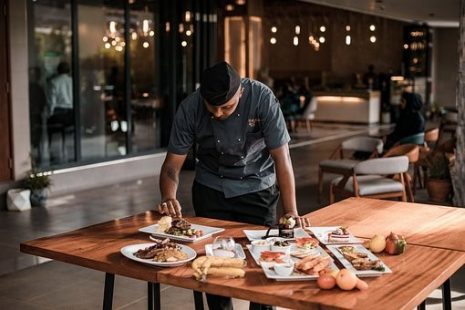To protect a trademark and minimize the risk of potential legal action, restaurateurs should employ an ongoing research strategy, registration and monitoring.
Sommaire
What impact could the pandemic have on restaurant brand portfolios?
The pandemic has pushed restaurants to innovate. Delivery services, technological services, and even innovative uses of restaurant real estate are leading to an increase in trademark demands beyond traditional restaurant services.
Foodservice companies have expanded the use of “ghost kitchens” (also known as “dark kitchens” or “virtual kitchens”).
In ghost kitchens, chefs prepare food only for delivery or pickup without a seat for customers. A ghost kitchen can serve as a cooking space for multiple brands, allowing operators to expand their customer base without investing in a separate area for each brand.
The ghost kitchen concept also encourages experimentation because a brand can get started quickly with little additional cost.
The legal consequences arising from the different classes and descriptions of services requested by kitchens and brands continue to evolve. Regardless of what lies ahead, restaurants and related entities need to extensively think when filing for trademark protection and enforcing their rights.
The Covid-19 pandemic has put innovative pressure on the restaurant industry. As restaurants have changed or expanded their products and services since the start of 2020, their trademark portfolios have also expanded to include new classes of trademark registration.
How to effectively manage restaurants trademark portfolios?
In this context and after having created the name, the question of the company’s trademarks protection and international extension quickly arises, even for restaurants.
Today, there is a craze for trademark registration, which has a considerable impact on the strategy of their management by companies. It is increasingly complex to create a distinctive and solid brand or to maintain a monopoly on a word coveted by many.
In addition, legal risks have accelerated with e-commerce, market globalization and the company’s international exposure to the Internet.
As the demand for contactless food delivery grows, restaurants and related brands have adopted broad strategies, including partnering with ghost kitchens or selling food through temperature-controlled lockers.
At the same time, these new business areas have created an increased need to examine restaurant trademark portfolios and identify areas for which brands should be protected.
What precautions should you take to protect your IP rights?
It is of great importance to protecting your IP rights to take several precautions:
- Ensure that you included confidentiality clauses in your contracts;
- Provide for non-disclosure agreements;
- Be vigilant on the terms of transfer of rights between the creator and the company.
It is necessary to establish a protection strategy in the real world and in the digital world to protect your trademark portfolio.
Why bet on the brand?
It is about obtaining an operating monopoly, which can be renewable indefinitely and will constitute the pillar in your marketing and commercial strategy.
It is necessary to register the trademark from the genesis of the project. Determine a limited but suitable territory is also of great necessity. Likewise, it is about thinking globally and digitally by protecting domain names when registering the trademark.
The domain name is an important asset!
Today, insurers identify the intellectual property of which domain names are a part as one of the top three risks facing businesses.
The domain name occupies a special place in that it serves as a vector for ever more sophisticated and varied frauds. Managing your trademark on the Internet is not just about filing and renewing but also building a strategy.
It is crucial to invest in protection and preventive defense strategy and also set up surveillance on your brand.
Finally, you must be particularly vigilant about the use that is made of your brand on the Internet to avoid any “bad buzz”, which would be particularly harmful to your reputation.
A restaurant’s brand portfolio is a true intellectual and economic investment that must be protected.
In order to offer our clients a unique expertise, necessary for the exploitation of intangible assets, we keep you informed of the current issues of intellectual property and digital economy through articles written by the legal team of Dreyfus & associés.
ABOUT THIS TOPIC…
♦ Why is the well-knownness of an earlier trademark not enough to qualify bad faith?

